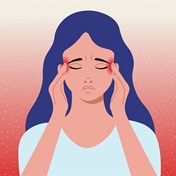Despite concerns that water pressure and other stresses might promote headaches, professional scuba divers may actually get fewer headaches than other healthy people, say Italian researchers.
Published online September 10 in Headache, their study compared the number of cephalalgia attacks (headaches of all kinds) experienced by 201 male professional divers and a control group of healthy men who didn't dive.
The divers were about 30% less likely than controls to get headaches in general, and when they did, the divers had fewer headaches per month.
The study's findings are limited by a small sample size, but its lead author Dr Roberto Di Fabio thinks the results will help determine how diving affects professional divers.
Dr Di Fabio speculated that the divers' overall health could be one reason they experience fewer headaches. Or, he said, the diving itself may offer some protection.
Exercise useful
"Exercise would be useful to make our brain less sensible to stress and avoid that even slight stimuli (that) could trigger migraine crises," Di Fabio said. "Therefore, diving as well as other aerobic sports could help in reducing the number of attacks of migraine."
Researchers have wondered whether the physical and mental stresses of diving might promote headaches.
High underwater pressure puts a person in danger while diving. Failing to ascend or descend properly can cause injury to vital organs as the gases within them compress or decompress. Improper diving techniques can also cause gas bubbles to form in the bloodstream – a condition known as the bends.
Divers are also known to display certain structural changes in their brain matter, and may regularly get tiny clots in the cerebral vasculature as a result of the physical stresses of diving.
To find out whether such effects lead to headaches, Dr Di Fabio's team recruited 201 divers working for the Italian Fire and Rescue Department and a set of age-matched controls who had never dived.
Both groups underwent neurological exams, then for one year they logged the details of their tension headaches and episodes of migraine with or without aura.
Low rate of migraine
During the study period, 22% of the control group experienced headaches compared to 16% of the professional divers. Moreover, the divers who did get headaches had fewer of them per month than the controls.
The rate of migraine sufferers was low in both groups – 4.5% of the divers and 8% of the controls. Tension headaches were a little more common - 10% of divers got them, compared to 13.5% of controls.
Dr Di Fabio said that the findings cannot be generalised to a wider population, such as recreational divers.
"Scuba divers work in stressing environments and have a high cerebrovascular risk, both conditions which are supposed to contribute to the genesis of cephalalgia," he and his colleagues conclude.
They add, "A longitudinal study may disclose if diving may act as a protective factor in the occurrence of crises of cephalalgia."
(Reuters Health, Andrew M. Seaman, October 2011)
Read more:




 Publications
Publications
 Partners
Partners














